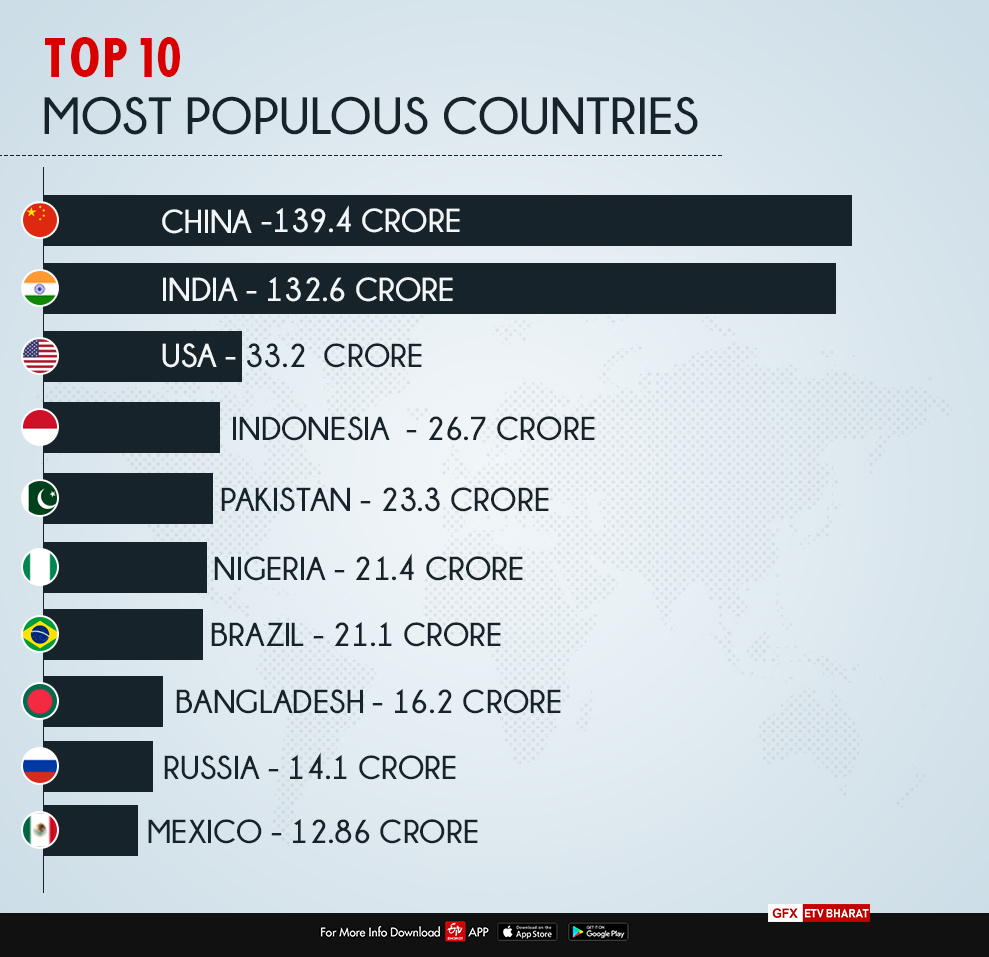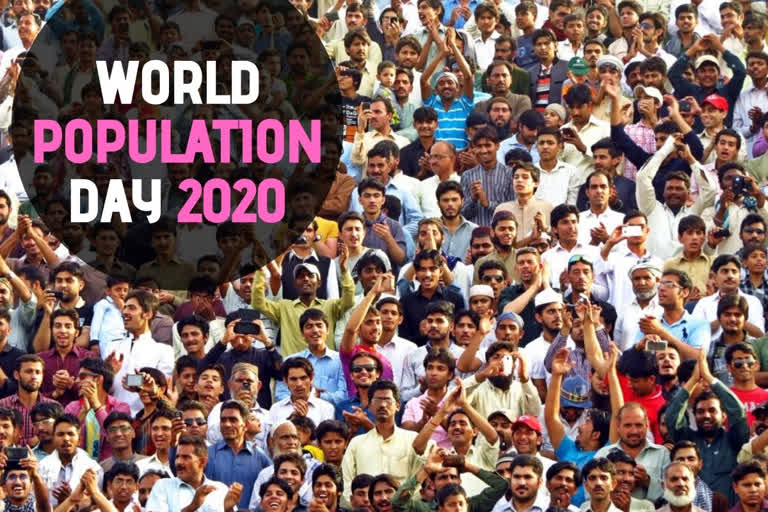Hyderabad: With the population of the world exploding at a rapidpace, the governing council of the United Nations decided to celebrate the World Population Day on July 11. Ever since the day was observed for the first time in 1989, the focus has always been on combating the issue of growing population and raising awareness about reproductive health.

According to a new United Nations report launched in 2019, the world's population is expected to increase by 2 billion persons in the next 30 years, from 7.7 billion currently to 9.7 billion in 2050.
Issues related to population:
- Family planning
- Gender equality
- Child marriage
- Human rights
- Right to health
- Baby's health etc.
One look at the above issue and it is clear that the world needs greater focus on reproductive health.
Reproductive health during the pandemic
This year, the theme of the day is to raise awareness about the sexual and reproductive health needs and vulnerabilities of women and girls during the COVID-19 pandemic.
Read: Urgent need for a comprehensive plan to check population explosion
The COVID-19 crisis has taken a astonishing toll on people, communities and economies everywhere. However, everyone is not affected equally. Women around the world are most exposed to the coronavirus. Supply chains around the world are being disrupted, unavailability of contraceptives increases the chance of pregnancy. Lock down has also increased the rate of domestic violence.
According to a recent research of UNFPA, if the lockdown continues for 6 months with major disruptions to health services, then 47 million women in low and middle-income countries may not be able to access modern contraceptives resulting in 7 million unintended pregnancies. 31 million additional cases of gender-based violence can also be expected. The disruption of UNFPAs programmes on the ground could result in 2 million cases of female genital mutilation and 13 million child marriages between 2020 and 2030 that could have been averted.
Moreover, women disproportionately work in insecure labor markets and are harder hit by the economic impacts of COVID-19. Nearly 60 percent of women worldwide work in the informal economy, at greater risk of falling into poverty. Woman’s unpaid care work has increased as a result of school closures and the increased needs of older people.
Read: India's COVID-19 cases fatality rate per million population among lowest in world: Govt



